THE SLOW EDITION
ISSUE 01/2023

Indulge in Monash Sport’s free offerings this Mindful May. Pause, reset and practice mindfulness through our series of initiatives that will help to activate your mind, body and soul.



THE SLOW EDITION
ISSUE 01/2023

Indulge in Monash Sport’s free offerings this Mindful May. Pause, reset and practice mindfulness through our series of initiatives that will help to activate your mind, body and soul.


ART DIRECTOR
SUBEDITORS
CONTACT
Caitlin Cefai
Sarah Louise
Alyssa Maggio
Edie Hopgood
Angel Tully
Esperanto Student Magazine

MONSU Caulfield Inc.
Level 2, Building S, 2 Princes Avenue, Caulfield East, VIC 3145
+61 3 9903 2525
editor.esperanto@gmail.com
creative.esperanto@gmail.com
Esperantomagazine.com
Instagram: @esperantomagazine
Twitter: @esperantomag
Facebook.com/esperantomagazine
LEGAL
Esperanto Magazine is published by MONSU Caulfield Inc.
Views expressed within do not necessarily reflect those of MONSU Caulfield Inc, the editorial panel, the publisher, or any other person associated with Esperanto.
PUBLISHER
PRINTER
PAPER
TYPE CREDITS
WRITERS
MONSU Caulfield Inc.
Printgraphics Printgreen
Pacesetter Laser Recycled
Neuzeit Grotesk, Capitolium2, Alda OT CEV, Serifa, Freight text pro, LoRes 12 OT.
Angel Tully, Ilanda Tran, Andie Perez, Khushi Jadhav, Gabriela Fannia, Edie Hopgood, Erin Constable, Caitlin Cefai, Mia Robertson, Jackie Zhou, Akira Kerr, Sarah Louise, Sreemoyee Banerjee, Felice Lok, Shabnam Sidhu, Soraya Rezal, Joann Grero, Brittany Busch.
ARTISTS
Alyssa Maggio, Ilanda Tran, Sandy Hoang, Edie Hopgood, Saskia Mortarotti, Jackie Zhou, Sama Harris.
We would like to acknowledge the traditional owners of the land where Esperanto has been created, the Boonwurrung and Wurrundjeri Woi Wurrung peoples of the Eastern Kulin Nation as Traditional Owners and Custodians. We pay respect to their Elders past, present and emerging. Sovereignty was never ceded.
Life Without a Smart Phone Is Impossible
Words By Erin Constable, Artwork by Saskia Mortarotti
Get Unready With Me
Words by Angel Tully
What I Miss About Lockdown
Words by Soraya Rezal
Are We Doomed? A Personal Reflection
Words Joann Grero
Through the Eyes of 6 Year Old Me
Words and image by Ilanda Tran
Sipping Our Way to Sustainability
Words By Andie Perez
The Tortoise and the Hare
Comic Strip by Sandy Hoang
A Case for Napping
Words By Khushi Jadhav
Time Will Tell
Words by Sreemoyee Banerjee
Coming to Terms With Therapy
Words by Akira Kerr
Advice From a Slow Traveler
Words by Gabriela Fannia
A Night in the City: A Film Photography Essay
Words and Images by Edie Hopgood
Love, Inevitable
Words by Caitlin Cefai, Artwork by Saskia Mortarotti
Danish ‘Hygge’ Culture: My Experience of Slow Living at Its Finest
Words and images by Mia Robertson
Stop and Smell the Roses
Artwork by Sama Harris
I Found Love, After Being in a Hopeless Place
Words by Jackie Zhou, Illustration by Ilanda Tran
That Pivotal Moment
Words by Felice Lok, Image by Jackie Zhou
Slow Dancing in the Dark
Words by Sarah Louise
Six Sips of Water
Words by Shabnam Sidhu
Slow Starts
Words by Brittany Busch

Welcome to the first edition of Esperanto 2023 — The Slow Edition!
It all happened so fast, didn’t it?
The world has been workin’ up a sweat on a treadmill towards the future we are producing commercial materials faster, learning things younger, growing older and constantly in competition for the newest technology.
However, for some people, the accelerator pedal of life has been pushed to the point of fracturing. This infinite race towards perfectionism has damaged our earth, and our people.
So, let’s ‘walk not run’ and ‘stop and smell the roses’. We want to explore all the ways the world is slowing down. The Slow Edition is dedicated to the tortoise, not the hare. It delves into all the ways the world sped up and then crashed, got carried away and then lost itself. It questions all the tempos of life, encouraging you to find your speed.
Here’s to a change-of-pace.
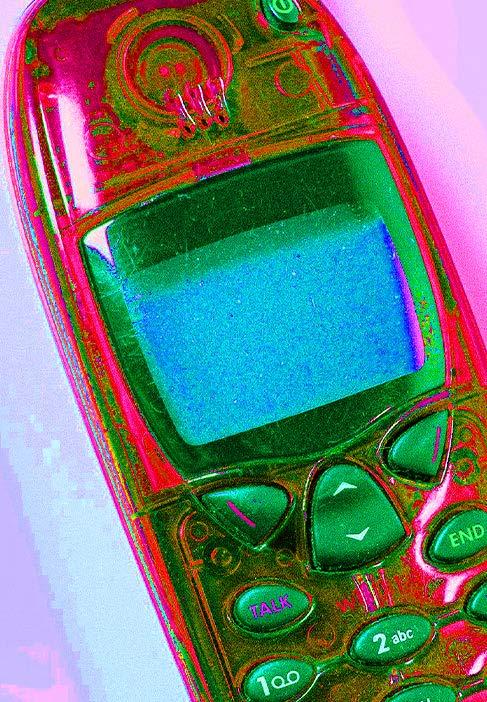
I couldn’t even forgo the typical five-day work week without it. No emails at my fingertips, no constant and incessant communication with my friends, no Google Maps, and no endless stream of podcasts to occupy my mind.
The week was not only boring, but a complete and utter failure. Please allow me to enlighten you with my brutally honest stream of consciousness:
I became more present in my day-to-day life. I found myself appreciating the smaller details, like staring at my enchanting pet fish — Festus — instead of a screen. All he does is swim around in a tank. It’s nothing compared to the endless stream of information usually available in my palm.
I would have liked to report that this increased awareness of my surroundings led to an epiphany about mindfulness, but I would also like to be honest. It instead led to a realisation that I cannot escape the technology my generation was born into. During outings with my friends, my lack of a handheld distraction-device led to my own isolation. I was not on my phone, but they were. Whilst I had the capacity to be more present, it could not lead to more in-depth conversations on self-development, life aspirations, or world issues. A conversation of this calibre requires a minimum of two parties being wholly present. These interactions merely led to an explanation of the latest drama I had missed on social media — conversations which only further ignited the longing I had for my phone.
The increase in mindfulness had the best effect on my internal conversations. Most importantly, my smartphone hiatus halted the constant comparisons I make against my peers on what I should be doing to get a job after graduation.
Joining LinkedIn has been my mental demise. Instead of scrolling through the endless successes of others, I had more time to spend on working towards my own success. As an aspiring journalist, I reflected on my interactions, to better observe the world around me — subsequently, story ideas began to spark more freely. The lack of a smartphone also created the time in my day to research and write these stories. In the spirit of honest reflection, I would like you all to know that none of these stories have been finished since the end of this experiment.
My quality of sleep improved drastically for the duration of this experiment. I credit this to establishing an uninterrupted bedtime routine. Without a smartphone, this routine was more polished than any influencer's nighttime routine video circa 2016. I would work out, stretch, do my skincare, brush my teeth (I even flossed!), and then settle down to read my book or stare at my fish until I fell asleep. I would sleep through the night, and maybe even longer, because of course I had no alarm without my phone. I did not fall asleep staring at a screen and I did not wake up to one either.
I have never thought of myself as addicted, but the minor inconveniences caused by not having a phone caused me to tip over the edge and fail this experiment.
My entire life planning system is on my phone. I do not have an alarm, a flashlight, maps, banking, access to news, recipes, or the ease of Googling anything at will. And that’s all without addressing my constant desire for personal gratification through social media.
My week consisted of trying to do regular life tasks, and failing. I’ll be transparent and tell you that
I did use my phone during this week. I used it less but still needed it. Not only did I use my phone but every task I could not do on my flip phone I just transferred to doing on my laptop. I responded to messages and scrolled Instagram from my computer. This was a semi-effective deterrent, but not effective enough to squash my desire to be constantly and aimlessly scrolling.
I wanted to know what was going on in the world. I wanted to know what a random boy from my high school was doing at 2pm on a Thursday, and I wanted to be able to Google every inquisitive thought in my mind. However, I can’t blame myself for any of these ridiculous desires. This week led to a deeper realisation of my mental attachment to the technology companies that make my digital world spin. By boycotting these technologies, I became more human in the way in which I relate to my environment. But I also felt even less human because of the divide created in my relationships with my peers. I have always known the addictive nature of technology, and the harm that lurks if you’re on the internet, but the digital community has been and always will be something I want to be a part of.
No, I didn’t see everyone’s latest Instagram post, but I did feel the existential dread of being excluded from life online.

 Words by Angel Tully @angel.tully
Words by Angel Tully @angel.tully
5 – 9am
When my phone alarm goes off in the morning, I always snooze it twice. I walk to the bathroom and splash cold water on my face before brushing my teeth. Still half asleep, I put on some moisturiser, and spray dry shampoo into my 4-day old hair. “Now for the next step of my morning routine…” I say ironically to my reflection, a theatrical pastime we are all guilty of: the Youtube ‘GRWM’.
“I wake up as soon as my alarm goes off at 6am everyday. I always like to start my morning with some yoga and stretching to get me warmed up for the day. Then I shower and begin my 12-step skincare routine. At the moment, I am loving this new Vitamin-C serum, *hold it up to the camera and use my hand to make sure it’s in focus* it’s LITERALLY magic, it makes your skin glow. It was sent to me by the company. After skincare, I use my Dyson *not sponsored* to freshen up my blow wave.” I get dressed, and eat some peanut butter toast at the same time as I throw on some light makeup. If I have time, I drink some instant coffee… the kind that comes in a sachet where you just add water. 15 minutes later, I’m running out the door because I’m about to miss my train to work.
“Breakfast is the most important meal of the day, so of course, I want to start my day right! My favourite breakfasts right now are protein smoothie bowls; they do take me a while to prepare when I want them to look aesthetic, but they’re so nutritious so it’s worth it. I also make an iced almond vanilla latte, stirred to perfection, which I love to drink out of old mason jars, it just gives it a nice touch! Finally, I choose my OOTD and head to my office to edit my content.”
5 – 9pm
Another day coming to a close, I go to the bathroom to take off my makeup. Some trusty cotton pads and micellar water do the trick. I cleanse my face with this little vibrating brush I bought at the chemist. Honestly, I’m not sure if it does anything.
“Welcome back to my channel! In today’s video, I’m sharing my nighttime routine. I take off my makeup before I do the nighttime skincare. My favourite part of this ritual is a tie between the 10 minutes I spend using a jade roller and gua sha on my face to sculpt and drain, and the hour when I take a bubble bath and read Colleen Hoover whilst my face mask sets.”
After a quick shower, I get in bed and look at my phone for a few minutes. I check that my alarm for tomorrow is set, and close my eyes. I lay there for a while, contemplating hypothetical scenarios, stressing over all the tasks on my mind, before finally drifting off to sleep.
“After my skincare, I like to enjoy a herbal blend of Melatonin Sleep Tea to help me feel even more relaxed. When I get into bed, I put on some calming music and pull a silk eye mask over my eyes (it matches my silk pillowcase, which is good for protecting my hair). Tired from my busy day, I fall straight asleep. If you enjoyed my 5–9am and 5–9pm routines, don’t forget to follow me!”

If the government were to announce a snap lockdown effective immediately, I’m sure everyone would start to freak out. Well, maybe post on social media about how you’re freaking out first, then actually start to freak out. What about the plans you’ve made to hang out with your friends? What about your classes, or your job? Going online again is not exactly ideal. But, most importantly, are you going to have enough toilet paper to last for however long this lockdown might go for?!
These daunting aspects of a lockdown were heightened during the peak of COVID-19. The unanswered questions, including the existential, “what is the meaning of life?”, were constantly running through everyone’s minds. I must admit, it was mentally challenging, especially because it lasted for so long that’s something I never want to go through again.
On the flip side, lockdowns can be calming, if you look at it from a different perspective. As an introvert, the thought of having a few days without the need to socialise sounds therapeutic to me. Is it just me or does anybody else get tired so quickly after a few hours of socialising? It’s almost as if my social battery is the size of one of those tiny watch batteries that needs to be replaced every now and then.
But really, there’s nothing wrong with wanting a few quiet days to yourself every once in a while.
We live in a generally fast-paced world. We are almost always on the go, due to societal demands. We are often made to believe that taking a break would deter our progress, be it professionally or personally.
Well, I’m here to tell you that it’s completely normal to want, or even crave, a break sometimes.
I would consider myself a relatively slow-paced person. By this, I don’t mean I delay things on purpose. It’s just that sometimes it feels like the world is moving too fast. So, I need to take a step back and focus on what it is I intend to achieve. It’s during times like these that a lockdown might not be a bad solution. The slow(er) nature of a lockdown allows us to sit with our thoughts and process them at our own pace.
I think the most attractive part about a lockdown is the fact that I get to spend a bit more time alone. I know, that makes me sound like such a loner. Maybe it’s my inner introvert, but I would much rather choose to have a chill day at home, compared to a night out. Don’t get me wrong, I love spending time with my friends and family but there’s something about having a bit of ‘me time’ that is so appealing. Perhaps I see it as a way to reset my mind and prepare myself for another set of hectic days.
So, if you ever find yourself in need of a lockdown, take the night off. Spend timewith just yourself and be fully present in your own life instead of worrying everyone else. It’s a valid way to feel, and is in no way a selfish act. In fact, I would be shocked if someone has never felt this way at some point in their life.
Remember to take care of yourself, prioritise your health and well-being, focus on the things that make you happy and I promise you will feel better about yourself no matter where you are in life. That being said, I think it’s time I stop being a hypocrite and start taking my own advice.
When I sat down to write this, I took a second to visualise my future. With the consequences of climate change being a scary reality, I’ve come to realise that the familiar world that exists in my head, may not be the one I’m faced with in the future.
Climate change is overwhelming at this point our planet is heading toward total chaos. Sometimes it seems like a hopeless case, so we avoid thinking about it altogether. There’s a desire to remain delusional, in an attempt to avoid an existential crisis. I can understand why because humans tend to avoid confronting our biggest fears it’s the easy way out.
Earth’s eventual descent into destruction makes me want to immerse myself in nature while I still can. I want my future to be this picturesque dream: living out a fairy-tale island existence, with the people that I love, surrounded by rolling mountainous landscapes, palm trees that tower over me and beautiful sunsets accompanying the balmy days of late summer. It’s all very tranquil and content, but then reality flips the switch.
I realise that the outcome for all of us will most likely go south in a matter of years. The oceans are rising because the Earth is heating up and melting the ice caps, entire rainforests are being taken off the map by money hungry corporations who use the land for agriculture, and many species will cease to exist in the very near future. I’m scared for the people that will outlive us if we continue down this road, then every life is at risk. Lack of clean air, safe drinking water, sufficient food supply, secure shelter and extreme weather conditions will wipe out entire communities. There won’t be a planet to inhabit anymore.
A combination of human and institutional decisions has led us to where we are now. It makes me think of hustle culture, which relentlessly trends throughout our society. It feeds into capitalism and has created this tunnel vision worldview where the main objective is to outdo your fellow counterparts. As you can probably tell, I’m not a huge fan.
I’m all for people wanting to have security and working to achieve their dream, but on the flip side, I think a result of that is us prioritising material value over our wellbeing. We’re always having to chase money at the cost of us slowly losing our minds. Institutions have tricked us into always ‘hustling’, so that we are these money-making machines that serve their own agendas. The idea of happiness is sold to us on a silver platter as ‘achievable’ if we just keep working and consuming every product known to man, as the earth continues to slowly rot.
In my opinion if we were given the time to just stop and not be in constant motion, we could get that much closer to creating a sustainable and idyllic future. It is a relief to see gradual changes being made and a growing population of environmental advocates. I just hope that in the end it’ll get us to a better place than where we are now.
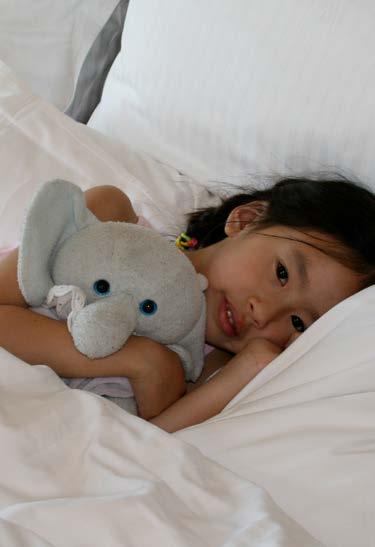

When I was a child, my brother created the world for me. Our playtime was hinged solely on imagination, with our customisable playground serving as a pirate ship, a hotel, a bedroom anything we desired. I was a diligent chef at my kitchen playset and a battle hardened warrior with my connector pen weapons. We designed elaborate storylines to our hearts desire and it was exhilarating.
I want to say that I miss the carelessness of childhood. I suppose I do, in a way but really, I also remember my young self probably felt overwhelmed by music lessons and practice, learning to swim, school and social interactions.
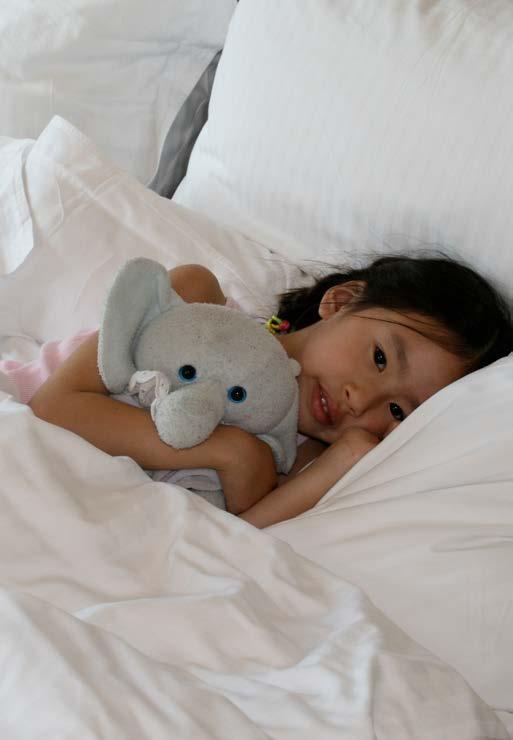
What I really miss is the chance to appreciate what I had more. Yet, ironically, the lesson I should be learning is to appreciate what I have right now, too, before it’s gone. I have the same love for drawing and art as I did then, but with new anxious thoughts. In the back of my mind, I’m constantly assessing if there’s something more productive I could be doing, caught in the helpless cycle of should I be working studying exercising relaxing working working working?
I think of the slow mornings at the beach as a child, the free expanse of days ahead, and scold myself for taking those moments for granted. Now I pack my bag for the beach and question if I should bring my uni laptop along. Pure foolishness, if you ask me. It all remains the same yet different; still drawing anywhere I can and daydreaming far too often, only with the added little blanket of guilt that weighs heavy and unapologetically over me.
I hope I miss the past less and less as I go through life. I hope to be 60 years old and content. I hope that despite the responsibilities and concerns I know that things are good, things have been good, and things can continue to be good. I’ll pack my laptop less, and my sketchbook more.
Just little things.
Trendy water bottles are everywhere. From gym-goers lugging around their pastel Frank Greens, to outdoor enthusiasts with sticker-decorated Hydro Flasks. They promote an environmentalist lifestyle, too, as taking good care of your bottle can promote eco-friendly practices if you’re actively staying away from single-use plastics.
But, there’s a downside too. You might have looked up the prices for these glorified flasks and thought “what the fuck?” dismissing them as a trend that will soon be replaced. Or maybe you’ve never really outgrown your Smash-drink-bottle-circa-2007-phase.
Despite your inhibitions, there’s no doubt that these metal drink bottles have a fanbase. So, what makes these bottles so popular? Are they truly sustainable, or are users only concerned about the environment when it's convenient?
I took a deep dive to find out.

Over the past year, Frank Green has sky-rocketed in popularity. Thanks to their co-branding with companies, and partnerships with influencers, Frank Green has hopped on the minimalist and ‘That Girl’ aesthetic and hasn’t left. As the bottles are so chic, they suit every occasion and you’re bound to exceed your daily recommended water intake in no time. See ya, dehydration! Next thing you know there’s some scuff marks on your bottle after buying your mini gold mine (yes, they’re not cheap). Don’t worry, just replace and recycle the bottle but keep the lid (so you’re somewhat sustainable). That’s if the plastic lid doesn’t break first from dropping it… Is the company even really sustainable, when their only eco-friendly approach is replaceable parts and biodegradable materials? It sounds like users could be having a love–hate relationship with their beloved Frank Green.
Bo, ‘Frank-ly Disappointed’
I was down in the dumps after buying my Frank Green bottle, to be honest. It just feels like it could get banged up pretty easily and it's SUCH a pain to lug around. Honestly, I'd rather just grab a cheaper flask next time. Hydro Flask and Frank Green? Overrated and overpriced, if you ask me. They're clunky and heavy as hell. I'm stuck with this ‘home’ bottle because I don't wanna risk scratching it up even more, but it's devastating because it cost me like a hundred bucks.
In 2019, Hydro Flask gained popularity through the ‘VSCO Girl’ trend, making it a status symbol that you could easily customise. It was almost like having a Hydro Flask made you part of the exclusive Cool People Club. Although owning one didn’t automatically make you an environmentalist, it did raise awareness about plastic pollution; specifically the Save the Turtles movement. The venn diagram of ‘Hydro Flask’ and ‘denting’ is pretty much a circle which sucks for users that were initially iffy with the price. But, the colourful bottles do have useful features like double wall vacuum insulation and a lifetime warranty. The company also engages in community and charitable initiatives, such as Parks for All. Not too shabby, Hydro Flask.
Satya, ‘Happy in Hydro’
My Hydro Flask is my go-to, but let’s be real, the price tag made me sob. But hey, it keeps my drinks frosty! The customer service is also next level they sent me a new bottle when my old one lost its ability to keep cool after three years. As someone who’s prone to clumsiness, I used to misplace or damage my old bottles all the time, but I haven’t done that with my Hydro Flask (knock on wood!). I never thought I’d be making a difference in the world, but ever since I switched to my trusty bottle, I haven’t touched a plastic bottle since. Don’t knock it until you’ve tried it, folks.
YETI
YETI born in Texas is a cult classic for nature enthusiasts. The bottle also appeals to the lifestyle envious; those who wish they were out in the wild instead of staying stuck in a building. So, when you see that student donning Patagonia and Carhartt while sipping their YETI, what they want to say is “yeah, I may be studying engineering but I’m really an outdoor junkie at heart”. As long as you don’t leave your YETI accidentally in the Monash Caulfield library, it could last for years. These bad boys are pretty durable, even surviving extreme situations like truck explosions that I’ve seen on Tiktok. Some of the drawbacks are that they’re heavy and expensive. Not to mention, there are not a lot of customisation options. However, YETI produces a straightforward ESG report on its website, and seems like a brand that does their best for the environment.
Tim, ‘The Abominable Sipper’
I was lured into the Yeti Rambler by its insulation properties and sturdy look. I can trust the bottle not to fail me when hiking or camping, but other than those rare instances, I don’t really use it. I rotate between BPA-free bottles that I have been using for years, because they’re lighter and do exactly what I need them to carry water. In my opinion, sustainable water bottles are just like any other bottle they just come with a tacit promise that their owner cares about the environment.
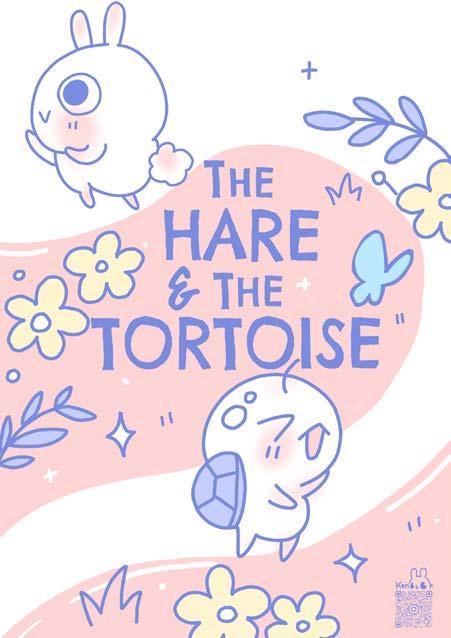
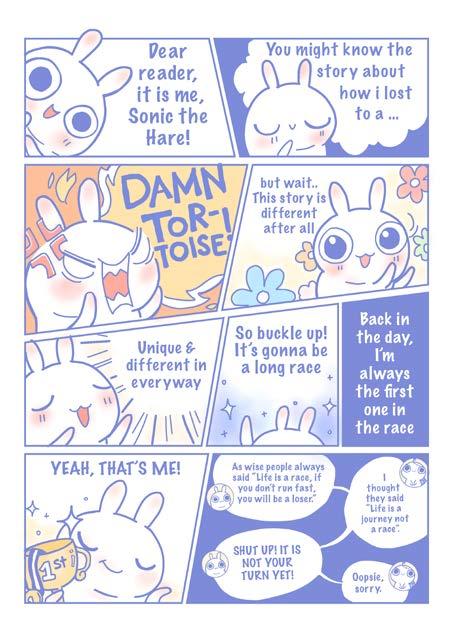

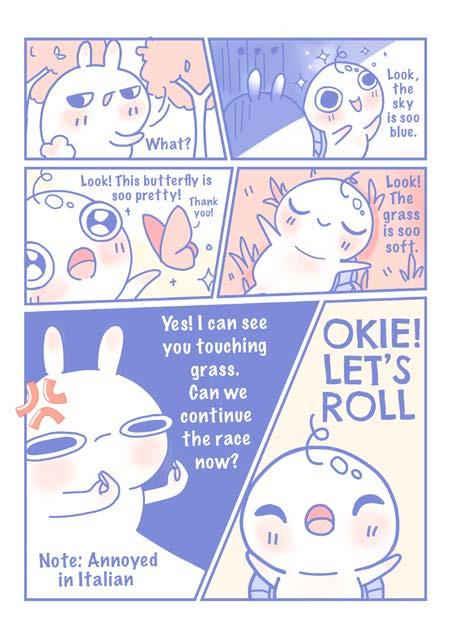

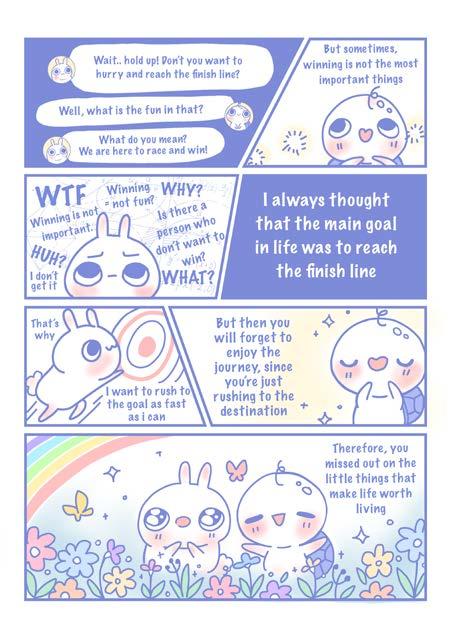
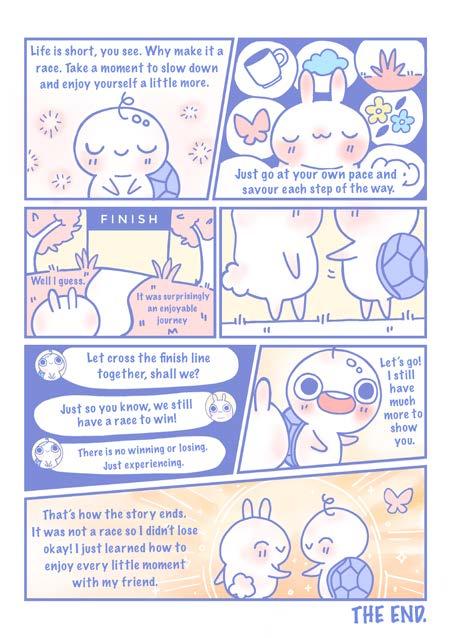
Sleep had always been an ‘activity’ I wanted to avoid when I was younger. As a form of rebellion, I would secretly play on my DS past my bedtime and sneakily hide it when Mum did her routine nightly checks.
I never really wanted my days to end. I knew when it was ‘time to sleep’ I would no longer have a chance to immerse myself in the world that stayed awake. Upon reflection, I have come to realise that my distaste for sleep rose from the disruptive, compliant nature of kindergarten ‘nap time’. The way day-time sleep was enforced for everyone, at the same time (assuming we all would rather hit-the-hay than play in the sandpit), was a concept I innocently could not fathom as an energetic child.
Now, as someone who has experienced 12 hour shifts at work, laborious university days and very caffeinated mornings (and afternoons), sleep is all I can think about. I realised my perspective on sleep changed when it was no longer something I was told to do, instead, something that I desperately wanted to do.
Long-qualified psychiatrist Dr. Li Hassan who focuses on young adult and adult psychotherapy, consults her patients about the importance of napping as part of maintaining good mental health. She advocates that the way people listen to their body about hunger, is the same way they should think about sleep.
“We must always remember that we do not always know the context as to why people have the urge to nap, the same way we cannot explain why we have cravings for food throughout the day” she said.
“Sleep and napping is a form of medicine and can mentally provide the comfort we need in so many intricate ways.” In saying this, she uses the metaphor of food when describing
‘extreme’ sleep deprivation and napping constantly. “Over-napping or the inability to sleep during night hours is a common response to trauma and psychiatrists can guide people to finding a sleep routine that works best for them. But napping should not be seen as a ‘guilty-pleasure’ like chocolate, but more like soup a nourishing meal” she said.
When pondering about my own relationship with napping and sleep, I treated it as either a chore or a ‘choice’; one I could avoid to keep pursuing my never-ending to-do list. As the idea of slowing down and nourishing my body suggests, I am starting to see napping as a form of meditation. Rather than viewing naps as a need, or as draining and selfish, more young people should view it as a subsection of their sleep routine.
Dr. Hassan also advises that young adults who may not have the opportunity to nap or may feel it is disruptive to their work, should develop a customised sleep routine.
“The concept of sleep hygiene is a preventive measure to ensure we are more likely to meet our individualised requirement of REM sleep. If we can get our sleep at night, we might not need to sleep during the day,” she advised.
“Lavender oil, softer sheets, or music, may help with sustaining a more meaningful, deeper sleep,” Dr. Hassan also suggested.
So I urge you to join me on my journey, where I will endeavour to put down the device at night, embrace my naps on campus, and get my essential oils ready for my much needed beauty sleep.
If it is sweet dreams, catching you at thirty, or not letting the bedbugs bite I wish you all a very sweet goodnight!
“Time will tell, time will tell...” The words play on a loop. My strained eyes look for comfort In the foam of my coffee, Spiralling at its own will like it always has And as I step onto the road, The parallels shift like a metamorphosis of time and space.
Only, nothing changes. The world freezes, A breath of hot air stops from escaping my throat. A hint of mint cologne hits me And all that I had built from scratch breaks down Like a tapestry knit of memories, Cobwebs in every inch and every gap, Dust in every corner, Wiped off, pulled apart. I see a black hole in the flesh.
I see a black hole with skin like no other — Skin I had traced every inch, every cell of. Skin I could almost feel on my tongue, A name attached to it that felt hot and murky, Syllable after syllable, Tone after tone, And tasted of days long gone.
I see a black hole that looks like you — A tousle falling right on the forehead, Eyes that hold pain in their gleam, And fingertips with ink smeared all over, Fingers that look long and windy and hollow And wrap around someone else’s.
I see a black hole with a soul like no other — A thumping, melodic heartbeat that speeds up with every walk, Every step taken by you, pairing like a puzzle piece with her, A lump of beating muscle, proof that you exist, All red and full of love I wish I could feel it too.
I’ve spent hours defying time, Jumping into pools and heartaches
Tracing my name on the backs of people I barely remember.
I’ve spent days drawing spirals on my skin
Trying to forget how your eyes looked
When they loved me and smiled at me, The way your fingers brushed against mine
And the way you slightly leaned against me, Whisper-kissed me with your stories
And told me you liked how I made you feel.
I’ve spent months defying your lips
And their way with words, The way they scratched my soul and left it to bleed, The hours they spent defining me, How they kissed mine, And how they hated my body I didn’t eat for days.
And I see you. Without a warning, I see you And the world somehow stops spinning. The ground beneath me freezes at an angle and I nearly fall off. It’s roughly been a year, roughly more You are a macrocosm in flesh, And everything I’ve done, I’ve done for you.
Spiders crawl under my skin, People pass by in a blur of colours in slow motion, And I see you with her. You dismembered me completely And squeezed the life out of my eyes, But now you smile, And the cold coffee looks up to me.
I see right through me
Sharper ends and all seep through my skin, Yet your skin is healed, and the clock has barely hit noon. I gurgled daffodils out of my throat and You gnawed away all things fresh, Yet you seem happy,
And I feel like a dead leaf on top of a grave. You pass by my blind spot and disappear from me again, And I disintegrate into dust Like the last sands in the hourglass of time —
Yet, the words play on a loop: “Time will tell, time will tell, time will… tell..."
And the world starts moving again.
The dress I pull out of my wardrobe is black with little white daisies. It always reminds me of something I used to wear when I was little. It’s flowy and comfortable, with little straps. I find those cute socks with the cherries in my sock drawer, the ones with the scalloped cuffs. I’m going to wear this outfit with my worn black Converse. I think this will make my outfit cute, but in a way that’s not trying too hard.
Where am I going? A little bit of shopping in the city? Lunch with a friend? A date?
Nope. I’m off to therapy.
“Oh, are you okay?”
“Yeah, I’m just an anxious girl.”
This was the short conversation I had with my manager when I turned down a morning shift because I had a psych appointment.
Of course, most people who go to therapy go because at one point they weren’t feeling okay. What with the costs of seeing a psychologist, and the amount of time and work it can take to get a referral would be the point of going through all that if I did feel okay?
I started seeing a therapist after I was feeling depressed because the rod in my arm threw my hormones out of whack (the doctors say that the rod is good, in my experience it is not). I worked through a lot of stuff. I was able to own that I inherited anxiety from my Dad (thanks Dad!), I had perfectionism issues, and I discovered I had an avoidant attachment style.
Going to therapy has been surrounded by a certain whispering of judgement and shame. This stigma lingers conversations as someone casually (or maybe with deliberate indifference) mentions that they go to therapy. Oftentimes, the conversation becomes confessionary, like a long-held secret is sombrely produced. Sometimes there’s an awkward silence until they admit why they go to therapy. But, I’m beginning to notice that over time especially with our generation recognis -
ing their own family’s generational trauma people fixing their emotional baggage isn’t something to bat an eye at.
In some ways it’s kind of weird that every three weeks I go to see a random lady and talk to her about my life for an hour and then leave. Yet, even if some weeks I come out thinking, ‘what were we even talking about?’, I still feel myself becoming a little bit more aware of the kind of person I am.
I am not a person who is used to taking time for myself. I’m sure many people would relate there is a certain amount of guilt that comes with watching an episode of a favourite show rather than doing the reading for your 9am tutorial. “It’s fine, I’ll get to it later”. So, therapy has become time when I get to focus on myself.
I am paying to give myself a little bit of the attention that I am not willing to normally, without a tinge of shame.
It feels like reopening a book you haven’t picked up in a while, turning back through the pages because you’d forgotten what happened, pouring over the words and trying to find more meaning than you had before. You realise new things, you learn about how this certain event led to what is happening now, and you take the time to develop an understanding of the story that lies before you.
Therapy gives you permission to be curious. It allows you the time to come to terms with your own personal history, discover the things that make you YOU, and if you need to, learn to change the things that have made you feel unhappy. You get to take the time to be unsure, a little confused, and tentative. You give yourself a chance to slow down and take everything in. So, every three weeks I sit on the plush grey couch, talking as my eyes drift around the spirals in the hemp rug on the floor, noticing the blue hues that fill the room sitting on the corner of a busy street. I take the obligatory deep, slow breaths as I recognise this time is just for me, my thoughts, my black daisy dress and the worn black Converse.
Waking at 5:30am to open a bustling cafe and surviving the morning coffee rush is not for the faint hearted. Add to that the lunch crowd, and an afternoon of cleaning and you’ve got yourself anything but a slow life. This is just a snapshot of the daily routine my friend — and cafe manager — Taylor.

At the start of the year, Taylor and their partner, Sam, decided to explore the world beyond Australia, travelling the globe for four months. Taylor’s philosophy: there are things you learn in life, you can only learn from travelling.
I spoke to this slow traveller, asking advice on how to break the cycle of living as if something is chasing you. Because let’s admit it, we all need to ease out of this hustling life for a moment I know I do.
So, first thing’s first; what was your itinerary?
We started off in Malaysia.
We were there for about two weeks and then from there we took a ferry over an island in Thailand called Koh Lipe.
From Koh Lipe, we took another ferry over to Phuket. We were there for a few nights, and then eventually to Bangkok. After Thailand we went to Laos.
From Laos we came back to Thailand and flew from there to Ho Chi Minh City in Vietnam. We spent about a month in Vietnam, headed to Hanoi, and left from Hanoi, India, to Delhi. We were in India for two to three weeks.
From there we flew to Egypt for about two to three weeks again, and then from Egypt we went to Bali for a week. Then we came back to Australia.
At what point did you stop and realise that you needed to travel?
Living in the middle of the city and working at a job that is high-stress and fast-paced, I think the trip was needed to balance that sort of lifestyle. That’s what makes travelling so appealing, it’s the fact that you get to slow down and experience new things. I’ve always been doing hospitality work, and then I would take a couple of months to travel. I think that’s why I can stay in the hospitality industry, because I know I have that escape once in a while.
How long did you have to save-up before the trip?
I put a couple hundred bucks away for the trip every couple of weeks. It was probably about 3–4 months before I planned the actual details of the trip.
What is the one thing you learnt about yourself during your travels?
I feel like being a cafe manager, you feel like you have to control everything, because everything falls on you at the end of the day. So, travelling sort of breaks that. It’s like “okay, I can’t control anything, so I’ll just go with the flow with whatever is happening and learn to enjoy, rather than try to make everything go your way”, because nothing ever goes your way when travelling.
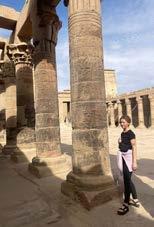

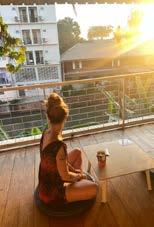
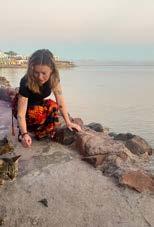
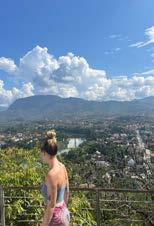
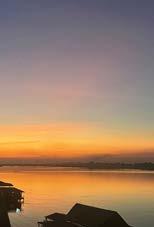
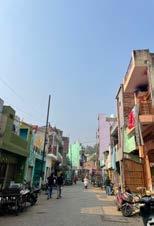

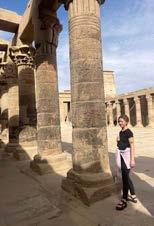
1. Treat every place like you’re gonna come back. Otherwise, you’ll burn yourself out trying to book everything and see everything. You’ll be disappointed if you don’t see things. It’s best to be just like “it’s okay, we missed that, but we’ll go see this other thing, so next time we’ll come and see the one we wanted to”.
2. Walking is really one of the best options
There are so many times when we decided to walk, and we’d stumble across hidden gems. There was this one time we found this hike that we didn’t know existed, it was between these two cafes. You just walked down a path and it took you up to a mountain and it was such a nice hike. We’ve driven past this area a few times and we’d never seen it!
3. Pushing yourself is such a bad mistake when travelling. You’ll probably end up getting sick. There were times when we took the overnight bus, that way we got [to the destination] quicker, as opposed to just taking the long route along the way. We took the overnight bus, and we ended up getting sick, so we weren’t able to see all the new places we had planned to. So, it’s sort of like “slow down, let’s not rush this. We’ve got time, we can spend the whole day in one spot, spend the whole day in the next spot, we don’t have to get there overnight.”
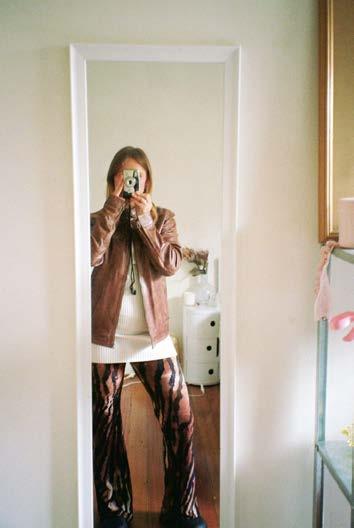
@edie.hopgood

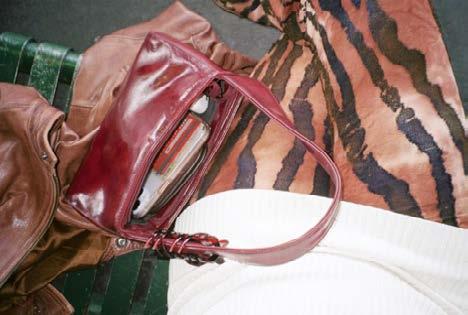
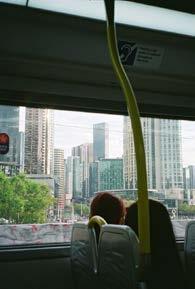


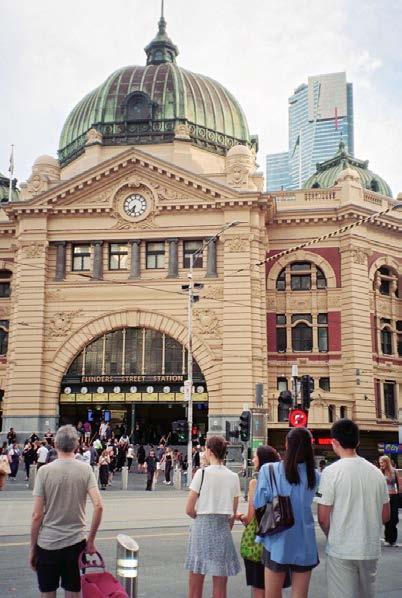




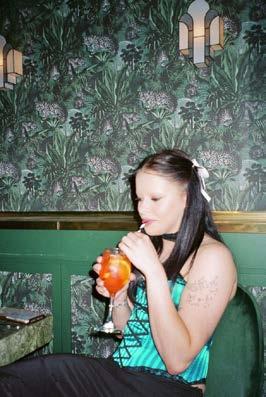
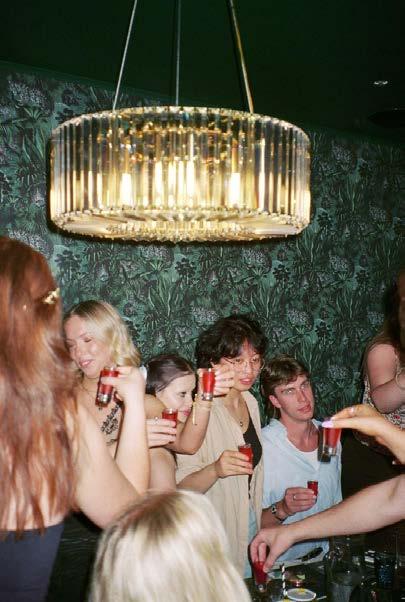



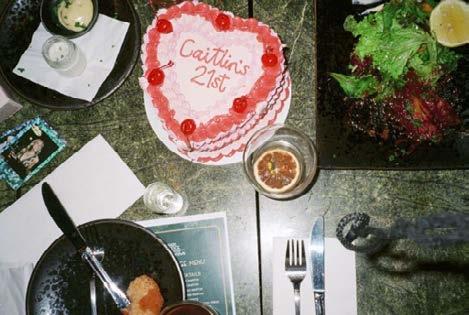

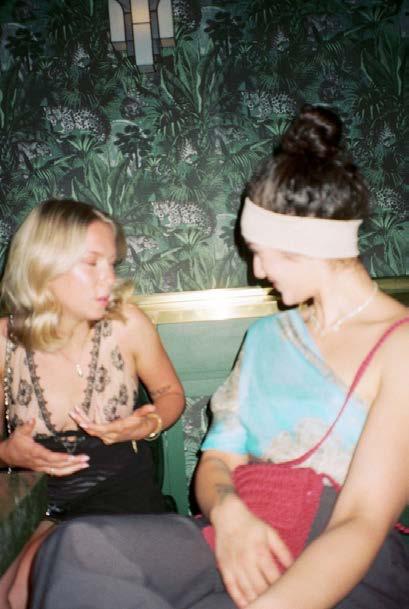




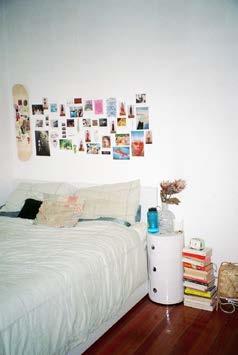

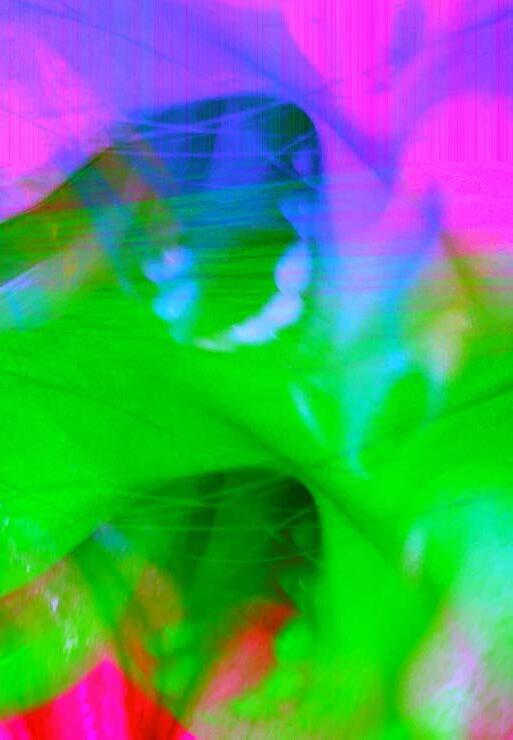
There’s something to be said for slow love. The kind of love where you can see it coming from a distance, like a train on a track, and you’re tied to the tracks by a rope. You know it’s going to hit you eventually so you lie there and wait.
That kind of love is also like you’re on a sailboat, pushed forward by wind and waves, heading towards an island. You can see the beach ahead, with colourful towels and people playing in the shallows, and you just can’t wait until you get to shore.
It’s like you’re standing under a streetlight, waiting for a bus in the rain, and there’s a person with an umbrella next to you, but they’re looking at their phone.
You wonder how long it will take for them to look up and see you, and let you stand under their umbrella. Because you need it, and you know when they realise you’re there they’ll offer it. So, for a fleeting second that feels more like years, you’re looking out of the corner of your eye, begging for that person to see you.
There’s a phrase; my favourite I’ve ever heard. Koi no yokan. It’s a Japanese phrase that means knowing you will, slowly but surely, fall in love with someone. It’s somewhat of the antithesis of love at first sight.
I had love at first sight, and he broke my heart. He was holding my hand, kissing my forehead, and building a life with me until simply one day he couldn’t anymore. He no longer loved me. He called it apathy. I call it love in reverse.
What we should have done was take our time. Let the doubts, the hesitancy and the fear play out. I should have asked for dates, asked for affection and attention at a pace. I should have set boundaries; physical and mental. But I didn’t, and when it came down to deciding on a life together, he realised that he didn’t love me, in fact he barely
even liked me. He simply fell head over heels and walked the path with me. The blind leading the blind.
I took time. Thought and wrote and healed. Messed up, hurt myself, and sutured myself back up. Over and over and over again. But now I am the girl tied to the tracks. Because of someone who this wasn’t supposed to happen with. But that’s always the way, isn’t it? The One falls into your lap when you’re trying to dust it off.
For the first time in my life I know what “koi no yokan” means. It means to touch their skin and feel a buzz the first time, but by the tenth, it’s a fire of passion you can’t put out. It means at first you share a small smile, but one day you find yourself grinning when you wake up next to them. It means never really thinking about what you wear, and then one day realising all your new clothes are in their favourite colour.
He’s the driver of the train. He’s steady, strong, constantly focused on moving forward. But now he’s desperately trying to slow the train. Tugging at the emergency brakes, causing the tracks to spark.
I see him trying to back out. I start pulling at the rope, afraid to look a fool, trying to get myself off the tracks.
We see each other. We’re both stuck, it’s a standstill, and the train has stopped. Or has it stopped? The train can’t stop, not really. It just moves slower, taking its time.
Letting us find the most comfortable position before impact. Because he will eventually let go of the brakes and hit me, and I’ll lie there, willfully, no longer pulling at the rope.
It’s koi no yokan. Slow love. Love, inevitable.
The Danes are considered some of the happiest people on Earth, and we can’t talk about the levels of happiness in Denmark without giving some credit to their culture of Hygge.
The word Hygge (pronounced hyoo-gah) loosely translates to the word ‘cosy’ in English. But, rather than thinking of it as a word, it’s better to understand hygge as an idea, a feeling, or a practice. The Cambridge dictionary defines it as ‘feeling comfortable and cosy whilst being surrounded by people you love’. While there are many different interpretations, in the book ‘The Year of Living Danishly’, Helen Russel describes it as “taking pleasure in the presence of gentle, soothing things”. It is in essence a practice of slow living. From enjoying a cup of gløgg with friends on a cold winter night, to making time to
appreciate a cup of coffee in the morning Hygge is a way of stopping to enjoy life's small pleasures. The history of Hygge ironically comes from an old Norwegian word. Regardless, the Danes have truly made it their own. The word officially dates back to the early 1800’s, but the old Norse language used a similar word that roughly translated to ‘protection from the outside world’. This is also a great way to conceptualise the idea of Hygge; the act of putting one’s stressors from the outside world aside, to take part in activities that are enriching for the soul.
Denmark is known to be a very cohesive community that values equality and solidarity. Hygge reflects these wider values as it places a positive emphasis on taking time for yourself, to check in on others, and to have dedicated time for enrichment and rejuvenation.
The practice of Hygge can be seen year round, but it truly comes to life in the Danish wintertime. Cold, dark days are often when Hygge is needed most. It emphasises informal and wholesome time spent with family and friends doing a range of activities, often revolving around food and drink.
One important aspect of Hygge is the use of candles. Lighting up living rooms, bars, restaurants and shops, candles are a way to bring a cosy energy to shared spaces, when people spend the dark evenings together.
My personal experience of Hygge, whilst on exchange in Copenhagen last semester, was insightful. It runs so deeply within Danish culture that it is hard to ignore the magic of it.
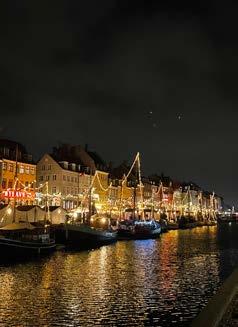
My Danish classmates emphasised how important Hygge is to get through the winter, which starkly contrasts to our winters here in Melbourne. The harsh weather conditions mean that they spend lots of time indoors; this creates the perfect time and atmosphere to practise Hygge with others.
‘kanelsnegle’ is a Danish cinnamon pastry, and it’s exactly the kind of food you would expect to share while practising Hygge.
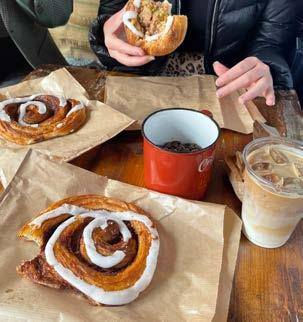
Cooking with loved ones is another great way to take some time out of your day to practise Hygge. Try the recipe for Danish ‘Kanelsnegle’ if you want to have a go at Hygge yourself.
I am so grateful for my experience in Denmark, and especially being able to witness the Hygge culture firsthand. I found it was a part of my exchange experience that allowed me to really connect with my fellow peers, and made my time all the more special and memorable.
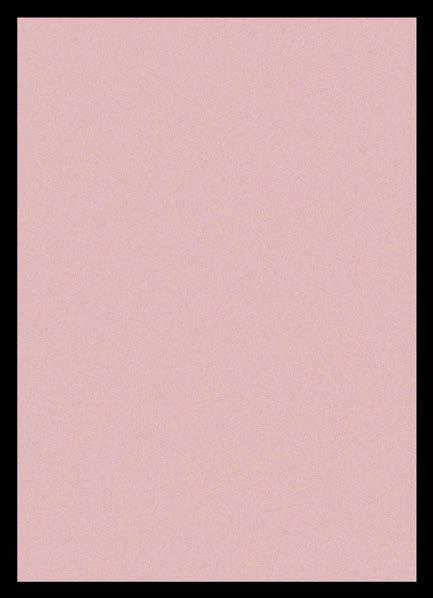
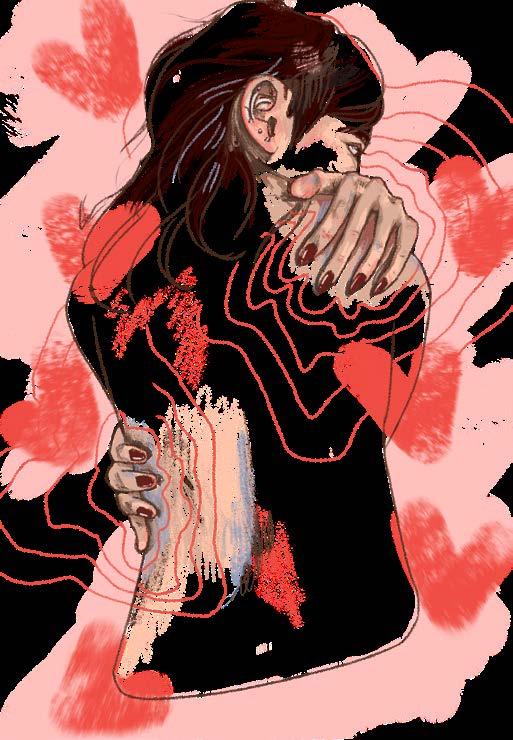
Let's be real, nobody likes talking about lockdowns.
A religiously traumatic experience for many people, the COVID lockdowns were the silly little treat nobody asked for. There have been many side effects to this prolonged period of social isolation. If I were to list them, I think I would need more than this page alone.
But I think the biggest consequence, I am still recovering from today, is my loss of love.
My love for myself, my brain, my crafts, my projects, my creativity and the work my hands are capable of everything was lost when my days began to blur into one. The best way I can describe it was that scene in Twilight when Bella was staring out of the window as the world passed her by. Except instead of it lasting about three minutes, it was over a year.
Now that life is ‘back to normal’, what do I have left of myself? The world moves on, but I never seemed to be able to, until I eventually did find love.

Reflecting on, and looking for, the love I found in life was a conscious effort, and one that took a lot of patience on the behalf of my friends and family. For so long, I was scared of creating things, writing and everything that made me who I was. It was an exhausting journey of re-learning how to come to terms with the feeling of creative stimulation, when I had built such a habit of simply passing time throughout lockdown for so long.
Alas, when my lovely partner took me to a pottery class for my birthday was when things started to turn around for me. After finding out my pottery teacher was also a queer POC, the warmth,
love and community that I otherwise wouldn’t have been exposed to this early on, changed things for the better. Getting my hands dirty on this night made me find joy and love in creation again. Feeling clay slip through my fingers and laughing about the mess we were making made something in my brain tick after so many months of it feeling rusty.
It turns out that a little hit of dopamine through creativity was all I needed to get my motivation back, and it was thanks to my partner and a couple of years of thinking about it. I then went to a punch needle class with my friend where we made fun designs and struggled against the gun (but laughed about it afterwards), made matching sterling silver rings with my partner, learned about Chinese calligraphy and made my own tote bag a workshop that my sister got me as a birthday present.
All of these workshops were done with me in the minds of people that I loved, and it made me begin to feel whole again. This made me realise that there was so much love and support in the arts that I had missed before.
I think the lesson I learned through all of this is to remain patient with myself. I found little reason to live after the lockdowns, as everything that drove me to love and create was missing and died out after so many months of ‘Bella Swan-ing’ during my study at home. My relationship with my study has since been heavily impacted to the point where I rarely go in there anymore. I’d like to think that one day I can mend my relationship with that study marrying my love of the arts with a space I once held so dearly.
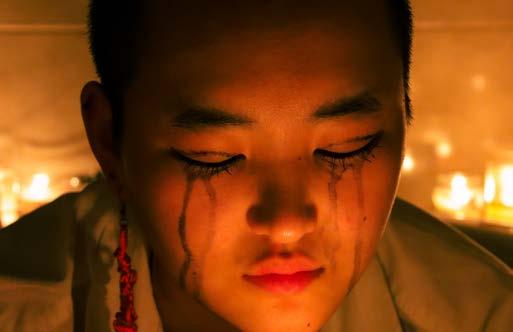
I never thought of myself as someone who could burn out. Whilst grinding through my final year of high school (the most intense year of studying), not once did I feel exhausted. Thinking about it now, it must have been the pre-twenties energy that I once inhabited. On the contrary, the past six months have really tested my limits, and it took a long summer of recovery to make me realise I won’t be able to go far until I learn to slow down.
For the latter half of my fourth year at uni, I had decided it would be a great idea to jump across three consecutive internships while working three days a week in a new job (spoiler alert: it was far from a great idea). I admit that at first, it felt exhilarating, as if I was rapidly ticking so many things off my bucket list and pushing myself well beyond my comfort zone.
If anything, I thought that all of these experiences would make me more confident. It made sense I was exposing myself to so many new faces, learning to make small talk, trying to constantly present myself well in order to make a good impression so surely, I had made the right choice in pursuing all of these endeavours. But that was until I felt a familiar gnawing feeling in my stomach just days after I finished my final internship my anxiety had peaked again.
I was confused. Everything was over but instead of feeling relieved, why was I back to rehearsing everything three times over in my head before I spoke? The counsellor I saw gave me two (unfamiliar) words to explain what I was experiencing: emotional burnout. She explained that while I was (supposedly eagerly) interning across three different workplaces, I had used up a significant amount of energy from constantly feeling anxious, so much so that my body had now exhausted itself
So I did the one thing I persistently told myself I would never do over a summer holiday I actually took a break.
Since graduating high school, I’ve felt obligated to spend my three-month long summer break productively. By ‘productively’, I mean through working as a Christmas casual, completing internships, volunteering, writing projects or travelling. I realised that all of this, which defined ‘productivity’
for me, were all things that could be added to my CV and drawn upon at my next job interview. In other words, my definition of ‘productivity’ revolved around my career. And this was how I spent every one of my summer holidays over the past few years, until this year. Believe me when I say all I did over this break was rest. For the first time in so long, I felt minimal guilt doing none of the things above. Though I have to admit I did feel a hint of guilt scrolling on LinkedIn and seeing someone announce they were beginning yet another law clerkship (while I was binge-watching a Netflix show in an atrocious posture on the couch), I didn’t let it eat me up.
This period of burnout has taught me that a gogo-go mentality will only get you so far. It is not sustainable. Being able to manage everything at a slower pace in the long term is so much more empowering than stretching yourself far beyond your capabilities. Five years on, the words of my high school teachers still ring true: life is a marathon, not a sprint.
As a new academic year has just begun, I know it’s going to feel like full steam ahead again, but I am now learning how to manage these feelings in a healthy way. One of my favourite productivity YouTubers says that burnout is just a result of missing or ignoring all the simple signs your body tells you to stop. Not taking necessary breaks when your brain feels foggy, not sleeping when your body is strained, not reaching out when you need it. When you don’t listen to your body for long enough, your body will just burn out.
Learn to detect these little signs and try your best to address them immediately. Don’t let it build up into something so overwhelming that it feels unmanageable. Now having returned to uni after so many months, there’s been the inevitable question of what I got up to all summer. To be honest, I loathe coming across as boring when catching up with friends and telling them that nothing eventful happened. But for the first time, I told them exactly that I simply just rested. And dare I say, burning out may have been one of the most pivotal moments which shaped how I now go about life every day.
The sky is jet black, the lights from Melbourne’s buildings are flickering on the horizon and Port Phillip Bay lies still. I know it’s been a warm day; I can smell it in the air. But I never got to witness the sun at its peak because I was at work from 9–5. I’m here now, though.
We drove here in my Kia. We didn’t chat because there was an unspoken agreement that we both needed the cathartic release of his ‘Music For Cars’ Spotify playlist. He curated it so carefully a representation of his firm stance that “your music taste represents who you are in this world”. Tonight, we are ‘Electric Feel’ by MGMT, ‘The Spins’ by Mac Miller and ‘Take Care’ by Drake and Rihanna.
It’s the perfect night for a skinny-dip. We’ve never done it before, but always saw it as a ‘bucket list’ moment. We strip down, and it feels as liberating as I had always imagined. My anxiety quickly kicks in as it always does at least for a second reminding me that my tummy has bloated from the burgers we ate for dinner. I should be worried about someone seeing my bare ass, but society trained me to care more about a little bloat. I mentally shut that down partially because I’m on a self-confidence journey, but mainly because it’s pitch-black out.
We run into the water giggling and giddy as ever. We feel young, unbound by the outside noise that usually rules us, and disgustingly in love.
He holds me tightly in the water. I thought
it would feel like we are the only people in the world, completely enclosed by the sea, and too distant for anyone to touch us. Instead, the water is underwhelmingly shallow a horribly exposing depth to be standing in naked. It feels awkward; as if someone would walk by with their cavoodle any second. None of that matters though we're used to expectations not meeting reality. We’re doing it, we’re making a memory, and it is hilariously us
When we are out of the water, and somewhat clothed, he reaches out his hand and asks me to dance. He presses play on another one of his playlists, then drops his phone into the sand like a true takes-technology-for-granted Gen Z. He plays ‘Best Part’ by Daniel Caesar and H.E.R. It feels like our song and we are blissfully aware that every couple says the same thing.
Holding me around my waist, his hands feel large and sturdy. I can barely see his face, but I’ve looked at him so many times now that I envision it with ease. His eyes are the only feature detectable because the city lights reflect in them. His chest is the perfect height for my head to rest on. We rock from side to side, seamlessly, in the same rhythm. We’re slow dancing in the dark, and it’s magic.
There is a difference between ‘trusting my instinct’ and ‘following my instinct’ that I sometimes fail to recognise. More often than not, the latter has landed me in some unpleasant and chaotic conundrums. To a certain extent, I pride myself on my ability to be rather impulsive. However, I am a walking contradiction. As paradoxical as it may sound, I overthink everything, and everything I do or say is meticulously calculated, that is, in my head a least.
All the sensible thinking and planning goes to waste when I let my emotions get the best of me. At the initial appeal of anything remotely provocative or provoking, I find myself bidding adieu to logic, and letting my more spontaneous thoughts and actions take centre stage. To some degree, I like to think it portrays me as carefree, bold, and exciting as I take life by the reins in the most self-destructive way possible and deem it an enriching experience.
It is one thing to daydream allowing the unorthodox thoughts one might have to run rampant in the imagination but it is another to actually say or do things that may come off offbeat.
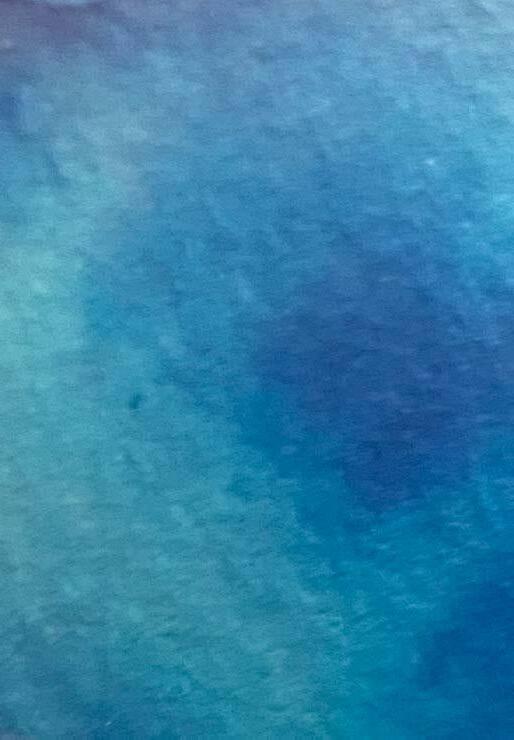
Here’s a list of times, in increasing order of severity, which one should but often doesn’t reflect on before reacting.
1. Liking something you don’t know much about, but talking about it like you do, only because you like the idea of it.
I once told someone I loved a specific author that I’d only heard of, but had never read anything by, because I find works broadly written about sex, drugs, and New York in the 1970s extremely edgy. Acting like I knew them made me come off as mysterious, alternative, and well to simply put, hot… That is until I realised the other person was a massive fan of the author, and started asking me questions about a specific book I actually hadn’t read. I very nervously said I loved the novel to then get told it was a series of short stories.
2. Pressing the restart button without a plan in place.
I decided to move abroad and live alone for the first time at the ripe age of 22. At this point, I didn’t even know how to cut an onion. I was also unaware that milk (even if unopened) should be put in a fridge to prevent it from exploding. This traumatised me into never drinking milk again.
3. Correlating one’s behaviour to their star sign.
The first thing I said to my situationship (whom I’ve clearly caught feels for) was that he’s “such a Sagittarius” right after he told me he quit his job, bought a one-way plane ticket to Spain and is leaving the country indefinitely in two weeks.
4. Being passive-aggressive when a dating app match decides to ghost me.
There was a time when I created a survey and sent it out to all the men who’ve ghosted me. I wanted to write about my findings and have it published. I felt the need to make a point about how incredibly frustrating it is to not be communicated to. In hindsight, I now feel I should’ve just let the dead rest in peace.
5. Willingly walking into what could potentially be the perfect scene for a murder.
A Hinge match I’d not met yet texted me to come over one night. He said he’d make me dinner and that was enough to convince me to go meet him, despite not knowing the area very well. I walked in and his whole place was decked out in animal print and a massive, framed poster of Jordan Peterson. I still chose to stay the night.
6. Crying to Pitbull
It just so happened that Pitbull’s ‘International Love’ was playing, and at that very moment, I decided it was a good time to have a mental breakdown in public. As Pitbull once said, “I’m taking all the negatives in my life, and turning them into a positive”.
I suppose it’s a guilty pleasure occasionally acting impulsively. A part of me is aware of the actions I’m taking but the other part of me enjoys being completely delusional, wandering through life in the most eccentric way possible. I could make a list of pros and cons, but for now, I'd rather continue with the thrill of it.
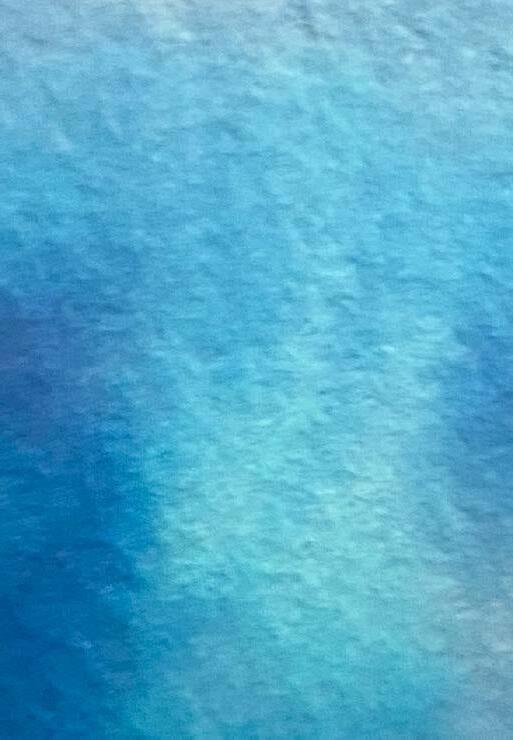
“To some degree, I like to think it portrays me as carefree, bold, and exciting as I take life by the reins in the most self-destructive way possible and deem it an enriching experience.”
“What do you
be when you grow up?”
It’s a question many of us have been asked from a young age but the questions don’t ever really stop, even once the ‘growing up’ is done. When meeting someone for the first time, we still ask “So what do you do?” This emphasis on careers has students jumping straight into degrees that they aren’t even sure they want to finish, and the consequences are significant.
18-year-old Aaiza began university this year after graduating high school in 2022. Although she wasn’t sure what degree she wanted to do, both her school and her parents encouraged her to go to university.
[Aaiza]
“I was like, I’ll just do it, try it, but it wasn’t like I was given many other options besides university courses.”
It’s a path that many go down by default.
28-year-old Karl works as an insurance broker, and he says that persevering with a degree straight out of high school isn’t always worth it.
[Karl]
“There’s no point doing it if you’re not committed.”
Karl told me that after sinking so much time and money into his degree, he felt he had no choice but find a job that was relevant to his degree, even though he doesn’t enjoy what he does.
“Now I feel like it’s too late,” he said.
Cosette, who is 26, went straight from high school to a Bachelor of Education (Primary), to working as a teacher. Her story highlights that not taking a break when you need it can also impact your mental health. “I’ve been at school since prep,” she laughed when she told me. “It hurts my soul. There’s been no gap in between.”
Cosette said she chose teaching partly because she had always enjoyed being around kids, but partly because she felt comfortable doing it.
[Cosette]
“‘I think I was comfortable, but I wasn’t… happy,” she said.
Though she loved the kids in the classroom, other aspects of the job such as the lack of time to pursue personal goals wore her down.
“I was driving to work and crying, and I didn’t know why I was crying,” she said.
Cosette knew at that point that she needed a break and decided to take a step back from her full-time role in 2023. She’s taking the opportunity as a big reset to think about what she wants out of life. It’s been an opportunity for her to challenge herself and try new things, and work has shifted down her list of priorities.
[Cosette]
“I feel motivated again… It’s not really a motivation for the classroom, it’s more of a motivation for my own personal growth,” she told me.
“I’ve told my brother, who’s doing VCE at the moment, to really think about what you want to do and if you want to take a year off and travel or… [if] you want to have a rest, that’s actually okay.”
“I wish I could go back and say to myself, ‘Take a gap year, you’ll still have it figured out, you’ll be fine. Go see some things.’”
“If I had taken that time off, maybe I wouldn’t have burnt out or felt so overwhelmed and stressed later on.”
25-year-old Jess said she also felt the pressure to go straight to university from high school.
Though she knows it’s a privileged position to be in, having so many paths in front of you can be stressful.
[Jess]
“Which one do I pick? What if I pick the right one or the wrong one? Or is there ever a right or wrong?” were some of the questions she asked herself.
Since leaving high school, Jess has started studying Occupational Therapy, lived overseas, is running her own art business, and has begun a Bachelor of Arts. She hopes that she can take all the things she has learned and put them towards doing good for her community, in whatever form that takes.
But she knows there’s no rush.
[Jess]
“Take your time and do what’s right for you. Not what your school’s telling you to do, or maybe your parents or your friends.”
Instead of focusing so much on the end goal, she tries to think, “What can I do now to put me on the right path to get to where I want to be? You know how people say… life’s short? Life is long. Every day you can achieve so much if you go and do it.”
“You can learn so, so much, just living.”
And taking time to reflect isn’t just beneficial straight after high school.
Marcelle got a junior bank teller role after school. She worked at the bank for seven years and assumed that is where she would stay, until she took time off to have her children.
[Marcelle]
“To be honest, I probably wasn’t really that happy in the bank,” she said. “It just wasn’t really me.”
“When you’re in it, you don’t see it. But when you step away, you’ve got a bit of time to think about it and reflect on what you like doing.”
She decided on a career change and went back to university to study teaching after she became a mum.
Marcelle, who is now 51 and still teaching, said going back to university at a later point in her life meant that she had really thought about the decision and was sure she wanted to be there.
“You’ve got time to think about it. And you also know what you’re giving up to do it.”
Her advice for students struggling to make a decision about their future: “Know that you’ve got a lot of time. You don’t really have to make that decision about your future right then and there.”
“Just live a bit, you know?”
“Life moves pretty fast. If you dont stop and look around once in a while, you could miss it”.

— Ferris Bueller, 1986